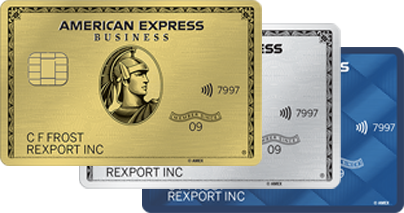
How to Choose A Business Checking Account for Your Needs
By Micheal Grace | American Express® Freelance Contributor
4 Min Read | October 11, 2021
Summary
New small business owners may feel tempted to run finances through a personal checking account, but that can complicate expense tracking. Instead, financial experts advise opening a separate business checking account – it’s also a legal requirement for businesses operating as an LLC or corporation.
But when it comes to business checking accounts, business owners may want to consider more than just the account’s balance: Does this business checking account best fit the needs of the business? Does it help streamline accounting and increase efficiency? Those are just two things to consider when selecting a business checking account. Here’s why it’s important to open a business checking account and how to choose the right one.

What Is a Business Checking Account?
A business checking account operates very much the same way as a personal checking account. Businesses can make deposits and withdrawals, write checks, use a debit card, and make ACH transfers, for example. And, like personal checking accounts, business accounts might have fees, such as monthly fees, maintenance fees, and/or transaction fees. But banks might provide benchmarks to qualify for fee waivers. For example, a business might not have to pay a monthly fee if their average monthly balance is $5,000 or more, depending on the bank.
Unlike personal checking accounts, in order to open a business checking account, the business owner will typically need to show their Employer Identification Number (EIN), Social Security number, photo ID, as well as their business license, articles of incorporation, or Doing Business As (DBA) certificate, depending on how the business is structured.
What’s more, business checking accounts generally afford business owners with some benefits personal accounts do not.
Why Choose a Business Checking Account vs. Personal Checking Account
People who run a sole proprietorship or have a side hustle – or other similar income stream – legally aren’t required to open a business checking account, and a personal checking account might fulfill banking needs depending on the nature of the operation. However, business checking accounts have their own benefits, and you may wish to consider opening one even if it’s not legally required for your business. For example, business checking accounts enable companies to accept credit card payments. Personal accounts do not.
Plus, business checking accounts keep personal money separate from business money, which tightens accounting efficiency, makes tax season easier, and limits personal liability. Business checking accounts also boost a business’ credibility. Checks written from a business bank account add a layer of legitimacy and suggest a level of professionalism that may not be conveyed by personal checks.
Finally, business banking accounts generally offer opportunities to open up a line of credit, which can be used to help fund growth initiatives or keep the business afloat in the event of an emergency.
How to Choose a Business Checking Account
To pick the right business checking account, consider the following key factors:
- Account features and services. Consider what features and services the bank offers. Beyond standard services like check-writing, bill payment services, debit card access, direct deposit, and mobile banking access, additional benefits such as employee debit cards can be useful, or integration with other business accounts like savings accounts or business retirement accounts.
- Fees. Most business checking accounts come with a monthly maintenance fee. Banks may waive those fees if the business maintains a minimum balance. It is important to understand what those requirements are and what happens if they’re not reached.
- Limits. Some banks may offer free transactions and free cash deposits up to a point. Once those limits are reached, the business is charged a fee, which may be per transaction, a flat monthly fee up to a certain number of transactions, or both. A smart business owner will know those limits and whether or not they may affect the bottom line based on the quantity and dollar amount of business transactions.
- Bundled deals. Ask if opening a business credit card or using the bank’s merchant services may help avoid any fees on business checking accounts. Most business credit cards offer cash back on statements or travel rewards, which may ultimately influence the decision to bundle.
- Interest. Some business checking accounts offer interest on certain balance levels. The annual percentage yield (APY) may not be much, but it could be used to reinvest into the business or boost employee morale.
- Branches and ATMs. Banks with physical branches can be useful for business owners who want one-on-one help managing finances. For businesses that need to make daily deposits or withdraw cash routinely, easy ATM access may be a must. Some online banks offer ATM access but note the size of their ATM network to avoid unnecessary ATM fees incurred when out of network.
- Software Integration. Accounting software can help businesses of all sizes manage their finances. If your business plans to use accounting software, consider asking the bank whether the checking account can be integrated with the software program you use. A streamlined system can increase business efficiency.

The Card your business deserves
From travel benefits to cash flow management, we've got a Card for you.






